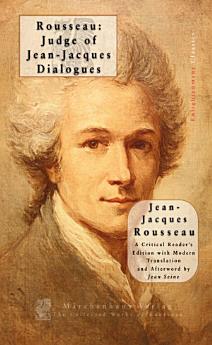Rousseau Judge of Jean-Jacques: Dialogues
Über dieses E-Book
Rousseau's "Rousseau Judge of Jean-Jacques: Dialogues", completed in 1776 and published posthumously in 1782, is one of the philosopher's most complex and psychologically intricate works. The book takes the form of three dialogues between a "Frenchman" and "Rousseau." The two characters debate the merits and demerits of a third character, an author named "Jean-Jacques." This unusual structure creates a fascinating psychological drama in which Rousseau literally puts himself on trial. The character "Rousseau" serves as both judge and defender of "Jean-Jacques," while the "Frenchman" represents the voice of Rousseau's critics and the broader public that had turned against him. The work emerged from Rousseau's intense feelings of persecution and his desire to rehabilitate his reputation, which had suffered tremendously following the controversy surrounding his previous publications.
This neglected autobiographical piece was the product of the philosopher's old age and sense of persecution. In it, he sought to justify himself in "Rousseau, Judge of Jean-Jacques": Dialogues by Christopher Kelly, Goodreads. He aimed to justify his life's work and counter the accusations that had made him a pariah in Parisian intellectual circles. Rather than being dismissed as evidence of paranoia, the dialogues reveal Rousseau's attempt to examine his character and writings objectively. The work functions as an autobiography, a work of literary criticism, and a philosophical defense. It offers readers insight into how Rousseau understood his intellectual development and the relationship between his personal character and his revolutionary ideas about society, education, and human nature. Through this complex literary device, Rousseau created a unique form of self-examination that anticipates modern psychological approaches to understanding the relationship between an author's life and work.











